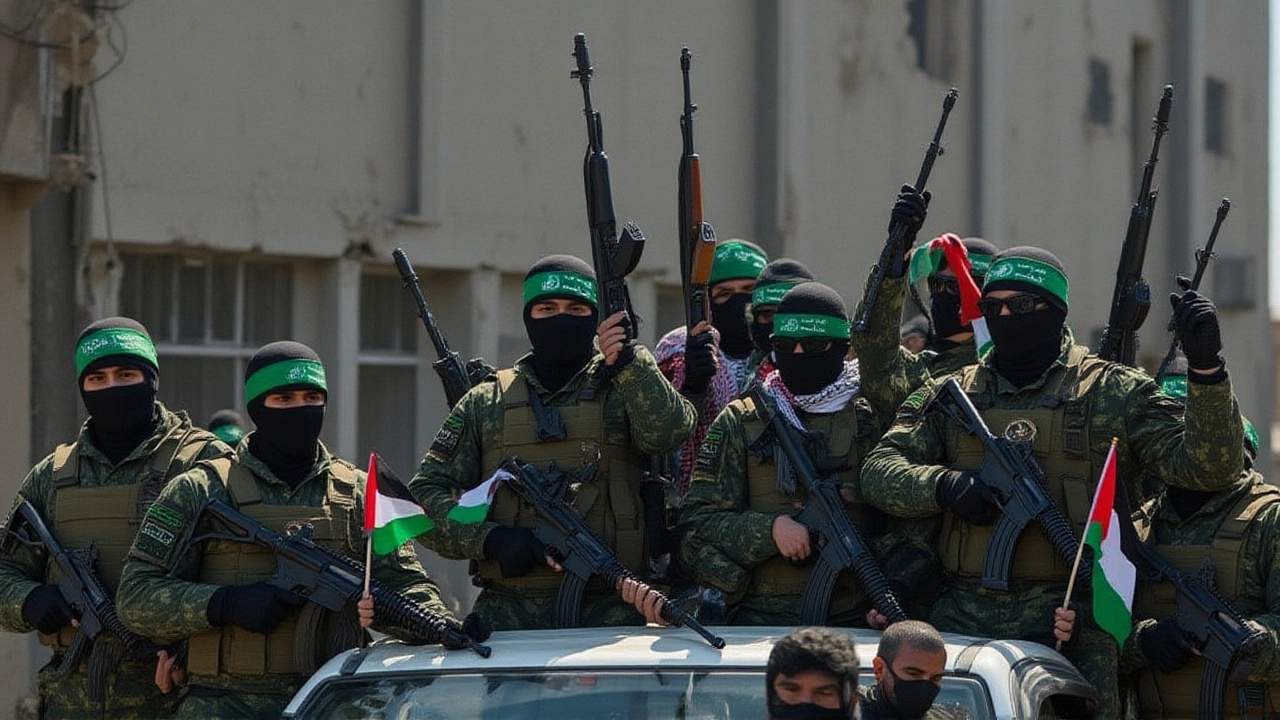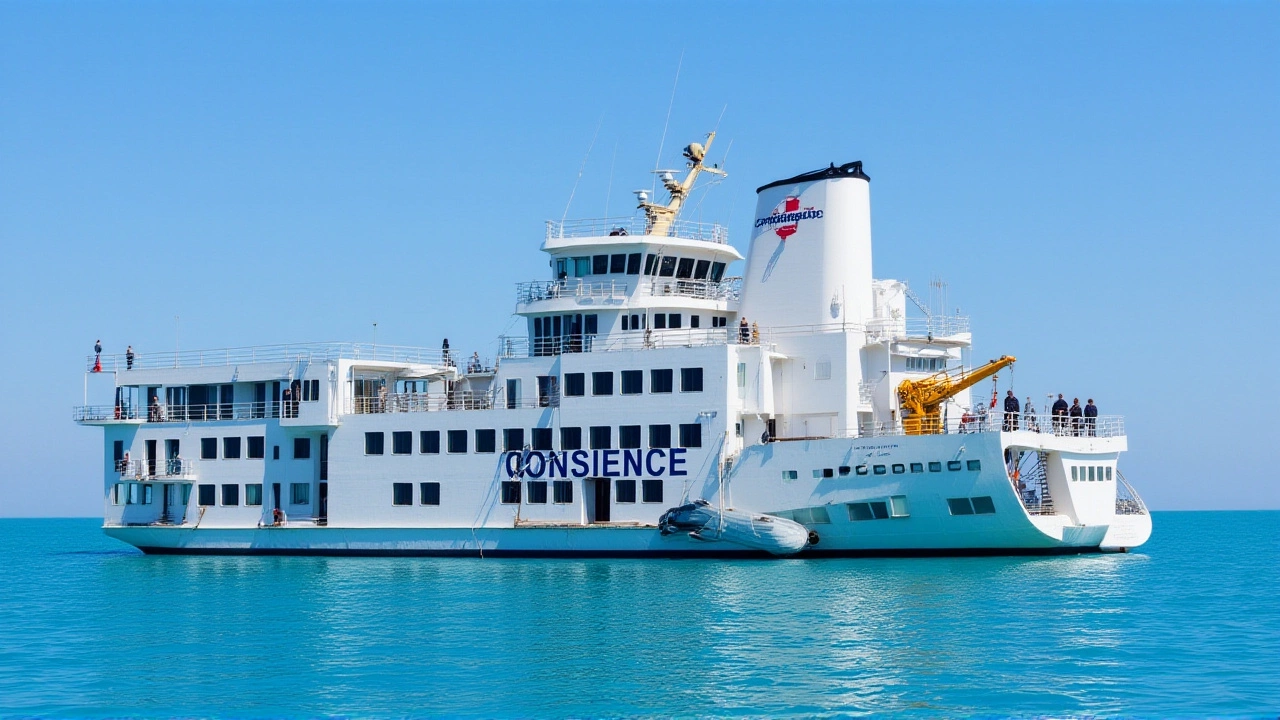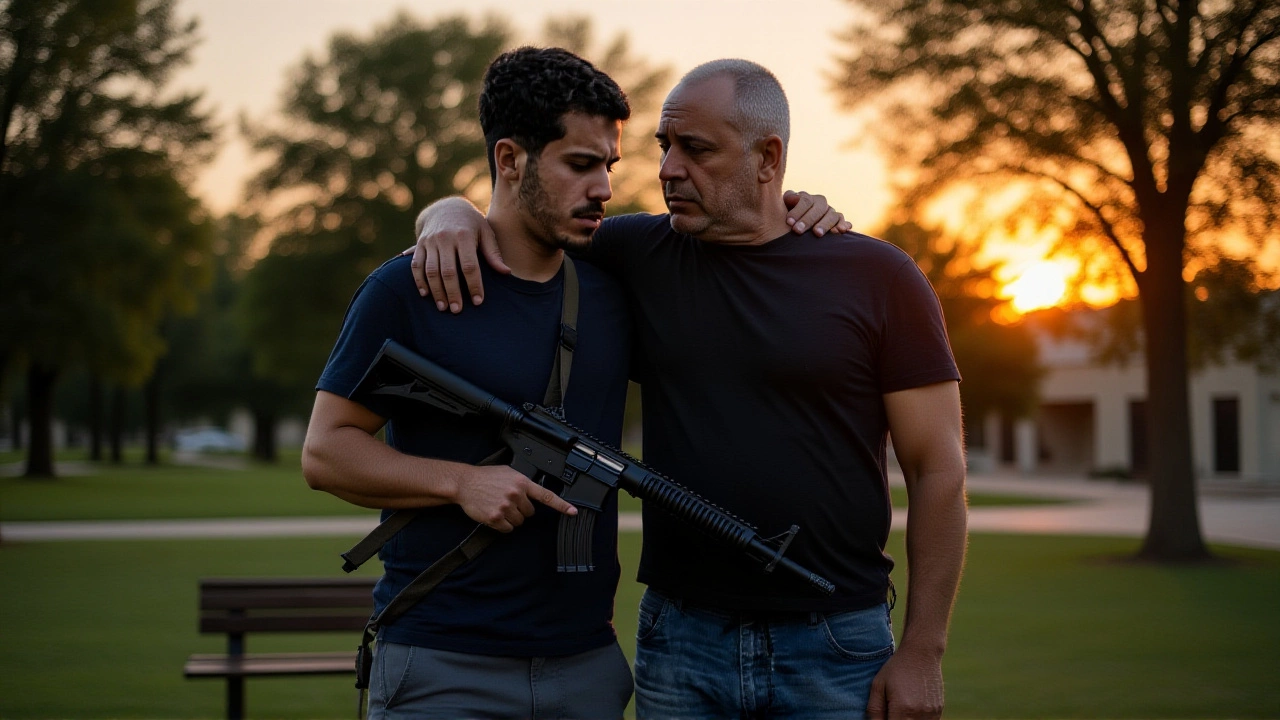On October 7, 2025, as families gathered in Netiv Ha’Asara to remember 17 neighbors slain two years earlier, a rocket launched from the Gaza Strip slammed into the town, forcing the memorial to end abruptly.
The projectile was fired by Hamas, the Palestinian militant group that has ruled Gaza since 2007. According to the Foundation for Defense of Democracies, the rocket struck at 11:34 AM UTC, just minutes before the community’s outdoor ceremony began. Iron Dome interceptors, operated by the Israel Defense Forces, detonated the incoming threat over the Eshkol Regional Council, preventing casualties but shattering the solemn mood.
Why the anniversary matters
October 7 2023 marked the deadliest day of the latest Israel‑Gaza war. More than 1,200 Israelis – including 46 American citizens – were murdered, and 251 were taken hostage. Hamas has framed that date as a "glorious day of success," a narrative it reiterated during the two‑year commemoration. The group also used the event to memorialise four senior leaders it lost to Israeli strikes: Ismail Haniyeh (former political bureau head), Yahya Sinwar (military commander), Saleh al‑Arouri, and Mohammed Deif. Their deaths have been used to rally fighters and justify continued attacks.
Rocket attack details
Coordinates for Netiv Ha’Asara sit at 31°14′12″N 34°22′48″E, a mere 1.2 km from the Gaza border. The rocket’s trajectory was tracked by Israeli radar, which flagged an unusual launch pattern that coincided with the memorial’s start time. Residents described a deafening whine, followed by a bright flash that lit up the sky. "We were just about to read the names of the fallen when the sky opened up," said Eliyahu Bar‑Levi, a 58‑year‑old farmer who lives in the community. "It felt like the war never left us."
Fortunately, no one was injured, and the Iron Dome’s success kept the incident from becoming a tragedy. Still, the psychological impact was immediate – many families fled the site, and the ceremony was cancelled.
Diplomatic backdrop: U.S. envoys in the mix
While the rocket streaked overhead, two senior U.S. figures were in Sharm el‑Sheikh, Egypt, trying to shepherd a cease‑fire deal. Steve Witkoff, a New York real‑estate investor turned special presidential envoy for hostage negotiations, travelled alongside Jared Kushner, former senior advisor to President Donald Trump.
The talks centre on the Trump administration’s 20‑point proposal, which Israel formally accepted on October 5, 2025. The proposal calls for a phased release of the remaining 128 hostages (including 31 dual U.S.–Israeli citizens) in exchange for the release of 7,000 Palestinian prisoners – a 45 % increase from earlier demands.
The U.S. Department of State issued a statement at 10:00 AM EST on the day of the attack, reminding the world that "today marks two years since the attacks of October 7, when Hamas murdered more than 1,200 innocent men, women, and children — including 46 Americans." The statement also warned that any further provocations could trigger a new UN Security Council resolution.

Reactions from Jerusalem and Gaza
Israeli National Security Advisor Tzachi Hanegbi condemned the launch as "a vile attempt to hijack a day of mourning and turn it into a theater of terror." He reiterated that Israel’s cabinet, which unanimously approved a deadline of December 31, 2025 for Hamas to dissolve its governing structures, would not be swayed by isolated rocket fire.
From the other side, Hamas spokespeople in Gaza dismissed the condemnation as "propaganda" and claimed the rocket was a "symbolic answer" to the memory of those they deem martyrs. The group, however, continued to refuse key components of the U.S. proposal, particularly the demand for complete disarmament of its al‑Qassam brigades.
Impact on hostages and the peace process
The lingering hostage crisis remains the most volatile element of the conflict. Of the 251 taken in 2023, 128 are still in Gaza, according to the State Department. Families in Israel describe a daily routine of uncertainty, with many refusing to leave their homes in case of another attack.
On October 9, 2025, Secretary of State Marco Rubio is slated to travel to Cairo to press Hamas for a definitive answer on demilitarisation. The U.S. has warned that if Hamas does not comply by October 15, the UN could invoke Resolution 2728, authorising a multinational enforcement operation.

Key facts
- Date of rocket attack: October 7, 2025, 11:34 AM UTC.
- Netiv Ha’Asara, 1.2 km from Gaza border.
What comes next?
The next 48 hours will be crucial. Israeli forces are bolstering border surveillance, while Hamas appears to be testing the limits of the cease‑fire framework. Analysts at the International Crisis Group warn that any escalation could spill over into the West Bank, where protests are already flaring over the stalled negotiations.
For residents of Netiv Ha’Asara, the day has become a stark reminder that even remembrance can be weaponised. "We will not let fear silence our grief," said Miriam Cohen, a teacher whose father was killed in 2023. Her words echo a broader sentiment across southern Israel: mourning and vigilance are now inseparable.
Frequently Asked Questions
How does the rocket attack affect the ongoing hostage negotiations?
The strike adds pressure on both sides. Israel cites it as proof that Hamas cannot be trusted to honour a cease‑fire, while the United States maintains that isolated attacks should not derail the broader 20‑point proposal aimed at freeing the 128 remaining hostages.
Who were the senior Hamas leaders commemorated during the anniversary?
The ceremony honoured Ismail Haniyeh, Yahya Sinwar, Saleh al‑Arouri and Mohammed Deif – all of whom were killed by Israeli strikes between 2023 and 2025 and have become symbolic martyrs for the movement.
What is the United States’ 20‑point proposal?
It calls for a phased release of the remaining Israeli hostages, a prisoner swap involving 7,000 Palestinians, and a timetable for the complete disarmament of Hamas’ military wing, culminating in a permanent cease‑fire by the end of 2025.
Why is Netiv Ha’Asara a target for Hamas rockets?
The town sits within striking distance of the Gaza border and has become a symbolic site of Israeli civilian resilience. Attacking it on the anniversary underscored Hamas’ intent to disrupt Israeli mourning and demonstrate that the conflict remains active.
What could happen if Hamas refuses the demilitarisation demand by October 15?
The United Nations could invoke Resolution 2728, authorising a multinational enforcement operation. In practice, that would likely mean a new round of coordinated air and naval pressure on Gaza, further complicating the humanitarian situation.
